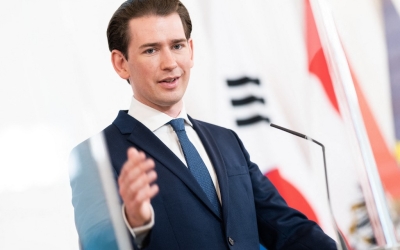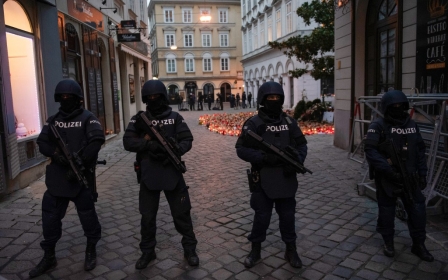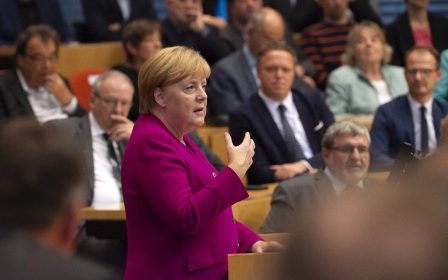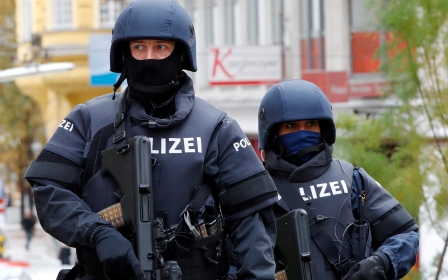Austria: Campaign against 'political Islam' suffers a setback in court
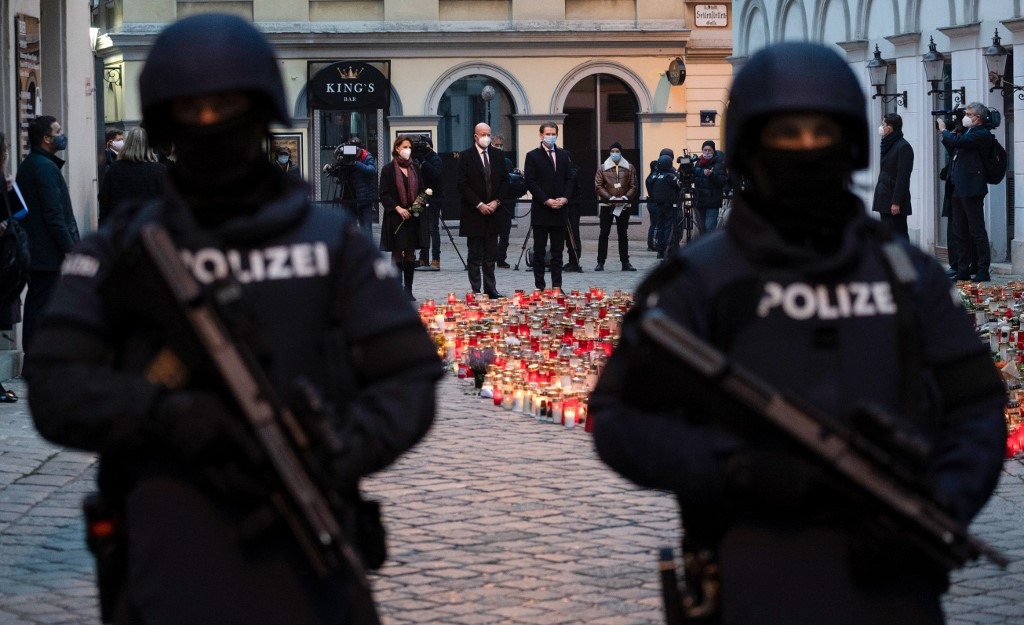
After four people were killed by a gunman identified as having sympathies with the Islamic State (IS) group in Vienna on 2 November 2020, Austrian state authorities carried out the largest raids against alleged terrorism suspects in the country’s history since the end of the Second World War.
During the raids in Vienna on 9 November 2020, I was awoken by special forces crushing in my door, levelling their guns at me and waking up my children. I was targeted alongside 29 others, accused of being an enemy of the state and financing terrorist activity.
Publicly exposed people, such as myself, have been turned into media targets, with the spectre of 'suspected terrorism' hovering over us
Seizing upon the deep-seated shock among Austrian citizens, the interior minister blitzed the public with simple and well-worn slogans about IS and so-called political Islam, with the latter characterised by Chancellor Sebastian Kurz as a “breeding ground” for terrorism. But there were numerous problems with this line of thinking.
The raids themselves lacked any legal basis, as was recently confirmed by the Graz Higher Regional Court after several defendants launched objections. While the prosecution accused some of those targeted in the raids of belonging to the Muslim Brotherhood, the court pointed out that the Brotherhood is not considered a terrorist organisation in Austria.
And yet, criminalising Muslim civil society has become a familiar strategy for the Austrian state, with false claims about the dangers of “political Islam” in the corridors of power leading to severe curbs on freedoms of religion, expression and association.
New MEE newsletter: Jerusalem Dispatch
Sign up to get the latest insights and analysis on Israel-Palestine, alongside Turkey Unpacked and other MEE newsletters
Islamophobic policies
Following criticism voiced by opposition parties who pointed out that the deadly attack on 2 November 2020 could have been prevented if the human resources had focused on the perpetrators rather than on Muslim citizens. Thus, this campaign against “political Islam” can be viewed as an attempt to divert attention and cover up for the failure of the Austrian security services to prevent the attack.
Instead of pinpointing the perpetrator before the devastating shootings, Austrian intelligence put their focus on innocent Muslims, cracking down on those who have been critical of state policies. This was one major finding of an independent investigation committee.
The raids in which I was targeted came after an operation that lasted for more than a year and a half, with more than 21,000 hours of phone tapping and more than one million photos. But even after the raids of our houses and the confiscation of our items, no charges were laid.
The state’s crusade against “political Islam” is part of a continuum of unconstitutional, Islamophobic policies that also includes Austria’s hijab ban and the closure of mosques.
There are countless side effects to this crackdown: Children have been traumatised by being torn from their slumber in the middle of the night, as in the case of my own family, while teachers have lost their jobs due to being placed under a cloud of suspicion. The presumption of innocence apparently does not apply in such cases.
In addition, publicly exposed people, such as myself, have been turned into media targets, with the spectre of “suspected terrorism” hovering over us, in addition to having our bank accounts frozen.
Far-reaching consequences
This month’s decision by the Graz Higher Regional Court will have far-reaching consequences. The 2020 raids staged and celebrated in the media by Austrian state authorities have been fundamentally called into question by the independent judiciary. And yet, the government continues to stick to its talking points about fighting “political Islam”. Even after the court's decision, the involved security services
Apart from the recurring pattern of the government seriously challenging the rule of law, as investigative journalist Peter Pilz made clear in his recently published book Kurz, this case highlights another important point: By targeting people such as myself, the state has effectively disavowed one of the most vocal critics of Austria’s Islam policy.
The court's decision on the illegality of the raids does not end the investigation, even as it strips the probe of its legitimacy
Investigators have claimed absurdities, such as that my speaking and writing about Islamophobia is part of a “strategy for building a parallel state or caliphate”. Criticism of the government is reinterpreted as propaganda for a terrorist organisation. The raids marked the tenfold confirmation of my worst predictions about the worsening relationship between state authorities and Muslims in Austria.
And yet, the court’s decision on the illegality of the raids does not end the investigation, even as it strips the probe of its legitimacy. At the same time, the larger question remains: Are reasonable decision-makers willing to repair the dismantling of civil liberties that has dragged on in this country for years?
The views expressed in this article belong to the author and do not necessarily reflect the editorial policy of Middle East Eye.
Middle East Eye delivers independent and unrivalled coverage and analysis of the Middle East, North Africa and beyond. To learn more about republishing this content and the associated fees, please fill out this form. More about MEE can be found here.



